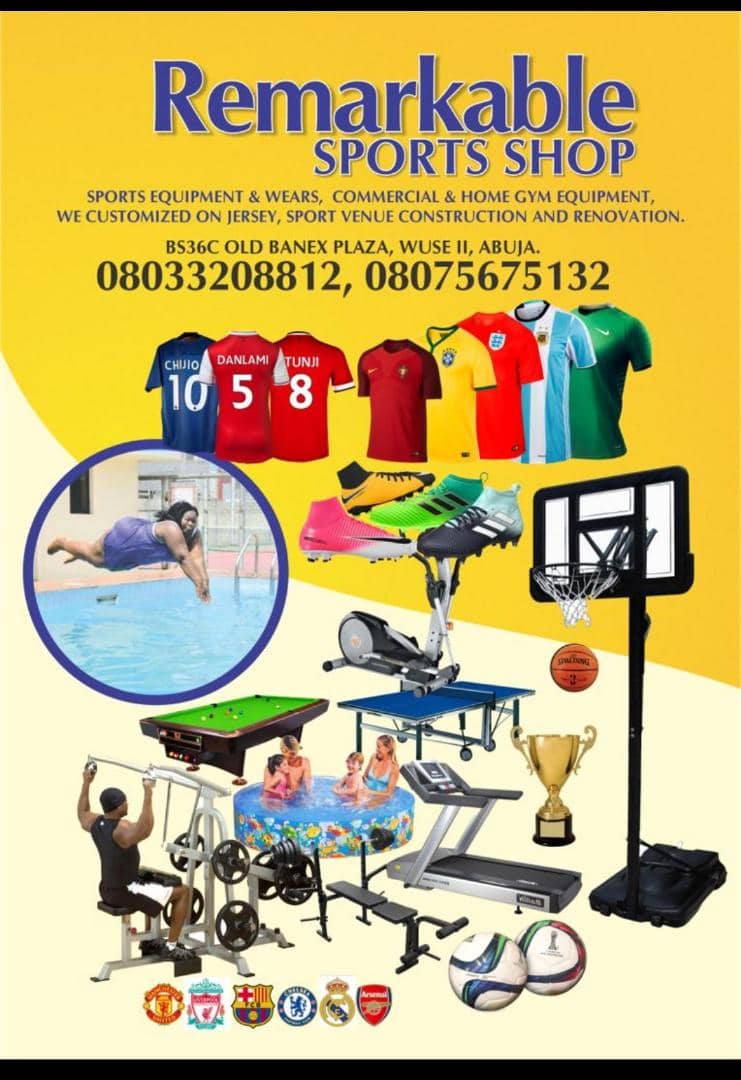- by Niyi Busari ,
- Jun 02, 2018
The Hypocrisy of Corporate Nigeria in Sports Sponsorship
-

- by Niyi Busari,
- Jun 20, 2018
- in European Leagues

THE HYPOCRISY OF CORPORATE NIGERIA IN SPORTS SPONSORSHIP
By Uche George Egbe, Esq.
It is often said that a gold fish has no hiding place, and the moment Alex Iwobi scored that goalin Uyo to guarantee Nigeria’s participation in the 2018 FIFA World Cup in Russia, the SuperEagles became an object of spectacle, attractive to not only the fans, the media and otherstakeholders, but also to business corporations across Nigeria.Since the turn of the new year, the Nigeria Football Federation has signed no less than sixsponsorship contracts with major corporations operating in different industries across thecountry, all hoping to leverage on the publicity and attention generated by Nigeria’s participationin the quadrennial tourney, to achieve their marketing objectives.
The number of these sponsorship agreements entered into by the NFF within such a short periodis no doubt impressive, but on the flipside it also reflects the negative attitude of Nigerian companies as it relates to sports sponsorship. Unlike in saner climes where there is a developmental approach to sports sponsorship, Nigerian companies often come late to the party. Hardly ever wanting to be a part of the process of engineering success, but always there to reap the rewards once a successful outcome is guaranteed. That is why some of these companies that did not already have a preexisting relationship with the NFF held back their purse until qualification for the global showpiece was already guaranteed. This approach to sponsorship is a major bane to the development of sports in Nigeria. The Super Eagles are now the object of attraction, but the Nigeria Professional Football League (NPFL) and the lower leagues remain inadequately sponsored.
Less than half of the twenty clubs participating. in the NPFL have any form of corporate involvement or sponsorship, but these same companies constantly carry the money they earned from the Nigerian market to invest in the promotion of European football brands. Critics often point to established foreign sports brands and make comparative analysis to establish the gulf in standards that exists between our local sports and those of our more illustrious foreign counterparts, ignoring the fact that the foreign brands we now embrace also passed through a developmental phase wherein they were encourage by their own local industries. A case in point is the role played by the British Sky Broadcasting Group (BSkyK) and BT Group in the founding of the English Premier League.
It is rather ironic and even hypocritical that at a time when we are being encouraged to buy Nigerian products to grow the Naira, the corporations that manufacture these Nigerian products would rather patronize and invest heavily in foreign sports brands, instead of investing in our
local sports. It is now against global best practice for government to be the major financier of sports, and the time for Nigeria’s corporate sector to get involved in sports business is now.
Where were these companies when our athletes were struggling for funds to participate in the Rio 2016 Olympics? Many athletes even resorted to begging cap-in-hand on the internet through go fund me accounts.
Just last year we had to cut short our participation in a continental gymnastics championship after running out funds in South Africa. Not so long ago Nigeria had no representatives at a continental wrestling championship held in South Africa due to lack of funds, this was after the Nigeria Wrestling Federation tried but failed to secure corporate sponsorship. Maybe these athletes and the competitions they partook in were not considered glamourous enough to deserve sponsorship, but it begs the question of what the yardstick for measuring qualification for sponsorship is.
There is an obvious need for sports sponsors in Nigeria to look beyond glory hunting and the instantaneous but momentary results that goes with it. We are at astage were like the rest of the world, we should adopt a developmental approach to sports sponsorship. It is not enough to throw money at sports federations. Companies should go into the grassroots, sponsor individual athletes, contribute to infrastructural/facility development and maintenance and generally do a lot more than they are currently doing. Whenever a case is made for increased private sector participation or an indictment for their lack of involvement, there is a hackneyed excuse that sports administrators are yet to make our local sports attractive. But this argument is flawed as it ignores the fact that the logistics involved in organizing a sports competition at an acceptable standard requires huge financial investment,hence the need for the private sector to shake off their apathy towards local sports and get involved in its development.
Another excuse they latch unto is the argument that there are little or no government policies that will encourage corporations to interact better with Nigerian sports, but this is only a subjective claim as there are several laws and regulations – like the Industrial Development (Income TaxRelief) Act and the Companies Income Tax Act – that offer incentives to organizations that engage in sports sponsorships.
The adequacy or otherwise of these existing laws and the incentives they offer are yet to be properly tested by these Nigerian corporations that export and invest money earned from the Nigerian market into foreign brands.
They therefore lack the moral ground to complain. These Nigerian companies whose products and services we patronize owe us the reciprocity of patronage.
It is an arguable fact that most of them currently pay lip service to their Corporate Social Responsibility, so at the very least sports sponsorship presents an opportunity for them to do better. It is however instructive to note that sports sponsorship should be viewed beyond the realm of being an avenue for fulfilling CSR objectives. It is an undertaking that guarantees
returns on investment and objectives, and companies who venture now are guaranteed to reap the long term rewards.





0 Comments:
Leave a Reply